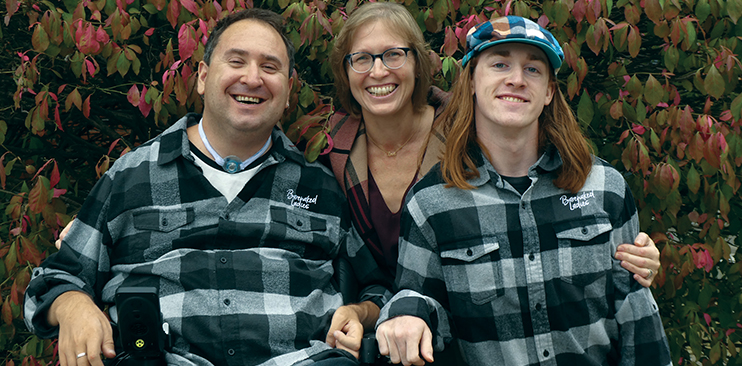Advocacy
Case for support - transforming PSW services as a sustainable career in community settings
Independent Living – Attendant Services for people with physical disabilities in Ontario
Background
Attendant Services was born from six attendant service demonstration projects established in the late 1970s to provide adults with physical disabilities with on-site support services in social housing buildings (referred to as Support Service Living Units – SSLUs). This resulted in the first order-in-council (OIC) for disabled adults who were not able to access attendant services to have a means to live in the community and go to work. This order sparked program policies which resulted in the first Attendant Outreach Program developed in 1983 to address increased demands for services and service options outside of social housing. From there, significant expansions of both SSLU and Attendant Outreach were established. By the late 1980’s further expansion of SSLU’s were facilitated by the development of social housing and social initiatives which led to new service models; this included the Direct Funding Pilot Project which was implemented in 1994. Presently, the province has expanded its service models across Ontario through a variety of independent living service providers geared towards people with physical disabilities.
Our activist and community member Chris Stigas is leading this initiative.
Independent living principles
- Those who know best the needs of people with disabilities and how to meet those needs are the people with disabilities themselves.
- The needs can be met most effectively by programs which provide a variety of services, rather than going to multiple different agencies for services.
- People with disabilities should be as integrated as possible into the community with the supports enabling them to pursue their goals.
- Services must be focused on a consumer-centric delivery approach.
- Service/care plans must be based on the consumers self-identified service needs.
- Services are available 24/7, 365 days a year.
- Services meet basic and fundamental needs – assistance is provided with getting up, dressing, bathing, eating, breathing, communicating.
- Services are considered non-medical as they are to assist with daily living activities even though the scope of responsibility includes ventilator and tracheotomy care, catheterizations, g-tube eating and bowel routines.
The intent of attendant services is to:
- Assist people with physical disabilities to pursue a participatory lifestyle and live independently.
- Assist people with physical disabilities in maintaining paid employment and/or pursue adult education programs to obtain a degree/certificate/diploma.
- Prevent the need for premature admission to chronic care, long-term care or other facilities.
- Enable people with physical disabilities, where possible, to leave institutional facilities.
- Assist/support family members in providing care.
The problem for people with disabilities within the PSW sector
PSWs are unregulated frontline providers who are also referred to as “Attendants” from Attendant Services Providers within the physical disability sector. Many PSWs are immigrants and visible minority females older than 45 years whose first language is not English. * There are approximately 90,000 PSWs in Ontario. Employment status varies, with the majority working in long-term care institutions and hospitals. A considerable number of PSWs (approximately 1/3) work in community settings but most often as a part-time occupation with multiple employers. Education for PSWs is not standardized and educational requirements vary by work setting as does wage levels. Turnover is high in this occupation and there is no unifying organization representing PSWs, the agencies, and people with disabilities. The sector is inconsistent with no peer-reviewed/evidence-informed standard of practice due to an array of funding/hiring/service models, including government-funded agencies, unionized agencies, private sector providers, and direct funding where consumers control the employment of PSWs from government grants. The majority of the 1/3 of PSWs in community settings work for seniors. People with disabilities who require the support of PSWs require the service over their entire lifespan and most often have the hardest time finding long-term sustainable PSW services who are trained and understand their role within independent living intent highlighted above. The consequence of unsustainable PSW community setting service is economically catastrophic and a violation of this nations human right of full citizenship for people with disabilities.
Recommendations
- Mandatory standards of practice within a client-centred model: Conduct a “capacity of adequate service delivery” review on the Attendant Services/Personal Support Worker Sector for the purposes of establishing mandatory Standards of Practice for client care within a client-centric model.
- Health care career: Invest in education and incentives and provide opportunities that position Attendant Services/Personal Support Workers on an upward path toward a lifetime career as a health care professional.
- Education and training: Ensure all Attendant Services/Personal Support Worker training and education programs adhere to the above “Mandatory Standards of Practice” and ensure program applicants meet baseline requirements for speaking and writing language skills prior to acceptance into the program.
- Oversight: Establish an arms-length oversight and governance organization to provide objective remediation for client complaints and conflict resolution between the Attendant Services/Personal Support Worker and the client.
*(Aronson, Denton, & Zeytinoglu, 2004; Neysmith, Reitsma-Street, Collins, & Porter, 2004; Canadian Research Network for Care in the Community [CRNCC], 2009a).

Filling the gap: navigating PSW care during COVID
Access to qualified and trained Personal Support Workers has been a challenge for some time. During the pandemic this has become a critical situation. With the inherent risks associated with the close contact PSWs must have with their clients and new rules governing their work in long-term care homes, people who rely on daily PSW support have been put in untenable situations. Quite often family members have had to step up and fill the gap caused by the shortages.

